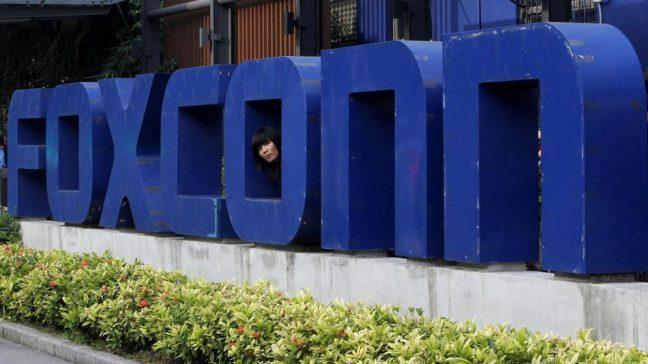Unprecedented cancer treatment. Safe driving technology. Advancements in the study of artificial intelligence. With $100 million in funding, this might just be the beginning of what’s possible at the University of Wisconsin. For one of the top research universities in the world, innovation has never been a goal; it has always been an expectation.
When electronics giant Foxconn announced its $100 million partnership with UW, it was with the same futuristic framing. Dwarfing other contributions, the investment stands as one of the largest in university history. The money would be used to fund a new research institute on campus, among other collaborations between the company and UW.
“At Foxconn, we see our role as not only being a major investor in Wisconsin, but also a long-term partner to the local community,” Foxconn chairman Terry Gou said.
Walker, Foxconn chairman finalize contract for factory in Wisconsin
The announcement comes in the midst of a controversial deal brokered by Wisconsin to locate a Foxconn manufacturing plant in Racine. Plagued by uncertainties, a significant depletion of natural resources and $4 billion in subsidies Wisconsin may never recoup, approval of the Foxconn deal is at an all-time low.
It is no coincidence that Gov. Scott Walker, polling worringly low against state Superintendent Tony Evers, has doubled down on efforts to convince voters that Foxconn can still benefit the state. For a governor whose trademark move has been characterized by snatching away money from Wisconsin’s public schools, it has suddenly become very difficult for Walker to justify the ever-increasing price tag of the Foxconn deal.
Then, along came a doozy — a $100 million investment in the very institute of higher education he’d stripped of hundreds of millions of dollars in funding years prior. In a perilous dance to convince Wisconsinites of his solid record in education, it seemed like the scales had finally been balanced; UW, its funding long at the mercy of the whims of the state GOP, could relax a little. Stretch, even.
Watching UW accept Foxconn’s investment — however well intended — must have left a bitter taste in the mouths of those who have seen higher education and public schools suffer within the state. How could Walker, inextricably linked to his attacks on Wisconsin schools, suddenly preach the importance of funding and supporting higher education?
More of the Foxconn Bonus! https://t.co/58YFp3vnNs
— Governor Walker (@GovWalker) August 28, 2018
Walker calls it the “Foxconn Bonus.” Most would give it a wordier name; something catchy, like “Overdue Solutions to a Problem that Never Needed to Exist in the First Place, and Will Indeed Still Exist Despite This Investment.” But that’s a bit of a mouthful.
However, that’s not to downplay the magnitude of this gift. The potential uses of $100 million for research and innovation are mind-blowing. It was no accident that the partnership announcement threw out words like “cancer treatment” and “medical imaging” in the same breath as “Foxconn” and “Wisconsin community.” How could we criticize a gift with the potential to do so much good?
Despite breaking university records, we shouldn’t let the numbers on a single check dictate how much we interrogate the source of our funding. We shouldn’t have to avoid difficult questions about why the investment was needed in the first place, merely because it has finally been made.
Condemning Foxconn entirely will blow up in Democrats’ faces
$100 million is a lot of money. But so is $4 billion in tax incentives, the millions we’ll inevitably add to the Foxconn deal on top of that, and the immeasurable value of our dwindling natural resources. So are the hundreds of millions of dollars stripped from UW under Walker, and the potential investments that could be returned under new leadership.
Years from now, the very same funds donated by Foxconn may be used to research the detrimental effects of the Foxconn deal on Wisconsin’s ecosystems. In all honesty, I can’t think of a better way to use them.
Julia Brunson ([email protected]) is a senior majoring in history.














